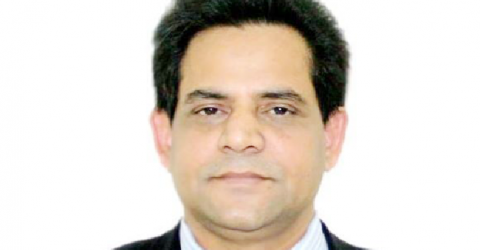
Religion plays a crucial part in most part of the world. I say most because, in places like Australia, where the Prime minister herself is a self-proclaimed atheist, religion can no longer be a king maker. But sadly, in most 3rd world countries, it still plays a pivotal role, in the musical chair of power and its solecism. Especially in Indian Sub-continent, the politics of religion has been going on for centuries, yet doesn’t show any sign of departing in the way it did in many developed countries.
Since the first invasion of the Arabs in year 711, there has been a major shift in the religious beliefs among the population of Indian Sub-continent. The predominantly Hindu India lost a huge portion of its mass to Islam. This resulted in the introduction of religion based politics, or the politics of religion. As majority of this region is still lingering in acute poverty, inadequate education scope and facilities for practice of science and literature, religion still seems and proves to be the safest bet for any ambitious power monger.
This acts as a cover for the inability to eradicate this poverty, failure to lead the nation towards a common goal by the ill equipped, semi-skilled and deeply corrupted political leadership. This deep rooted ignorance in the society and the existence of these undeserving leadership, has been reciprocating each other’s existence for ages now. This dependence has grown so deep that, these leaderships are reluctant to move out of it, or even if they want to, they have to step back because of their inability to build a knowledge based society.
They are very well aware of the fact that, an amply educated mass would never accept a weak visionless leadership. So majority of the leaderships feel, confining the large mass in the darkness of religious superstitions and backwardness, lends it easier for them to manipulate their fate. As the subcontinent was divided based on religious identity of its citizens, it is no wonder; religion will play a part in every room of the society.
The geographical location of Pakistan, sharing a common border with hard-core Islamist Iran and troublesome fundamentalist playground Afghanistan, slowly but surely, led the country to a path of deeply rooted Islamised social structure; as a result, politics in Pakistan is merely dwelling with the feelings of the Muslim population there. India on the other hand, although a predominantly Hindu country, they still have a large Muslim population. Religious segregation of the voters plays the pivotal role in deciding election outcomes there. Congress as we know it, have always been portrayed as a friendly alliance to the Muslims. While they have won the trust of the most moderate Hindus, Muslims have been their eternal vote bank.
BJP-RSS alliance on the other hand, is a hard-core believer in Hindu supremacy and boasts the support of the most die-hard Hindu nationalists of India. As with progression of the society, major part of the young India has become more liberal and moderate, but they are a minority as results of recent national elections in India proved it so convincingly. While being branded as a secular force, Congress, has drastically failed in protecting the rights of rationalists.
Bangladesh, which started as a nation consisting of a Musim majority population, 50 years after its birth, finds it left with merely 10% Hindu population, rendering the effect of religious sentiment of this huge Muslim population, unfathomable in the eyes of the politicians. It doesn’t take a mathematician to figure out that, none of the political forces in power during this period, has been able to provide a secular environment for peaceful co-habitation of religious minorities and majorities.
Although East Pakistan, as it was known, was formed based on mainly the majority of Muslim occupation, 50 years after its formation, the inhabitants of this region did not prefer a national identity, based on its language and culture. Although the goal was to diminish the trend of oppression on religious minorities, the last 50 years proved it to be futile, as more and more Hindus were forced to leave the country with only unofficial recognition of this trend.
It is a secular fraction that decided to omit the Muslim part, giving the impression to the society of establishing a secularist country. Due to its strong tie with India, Awami League (AL) has always been portrayed as a political force, sympathetic to the cause of the Hindu population. AL has always taken advantage of this tag and had the privilege using the minorities as their vote Bank. But allegedly AL even failed to revoke the black law ‘Vested Property Act’, which made it possible to occupy minority owned properties forcibly, with endorsement from the state and legal system. Along the years, this law has been misused by the influential and thugs in the society, irrespective of political Identity. A recent research done by famed economist Dr Abul Barakat, found that, the equal beneficiary of this Law has been followers of the ruling party during its reign, irrespective of BNP or AL .
On the other hand, BNP the other major political force in the country started its journey into the political periphery by re-establishing Islam based politics. The hard-core and fundamentalist Islamic political force, Jamat-E-Islam and its leaders were re-established into the political domain by BNP. Jamat intends to establish Sharia Law in the country and denies most of the major values of a liberal, secular democratic country.




